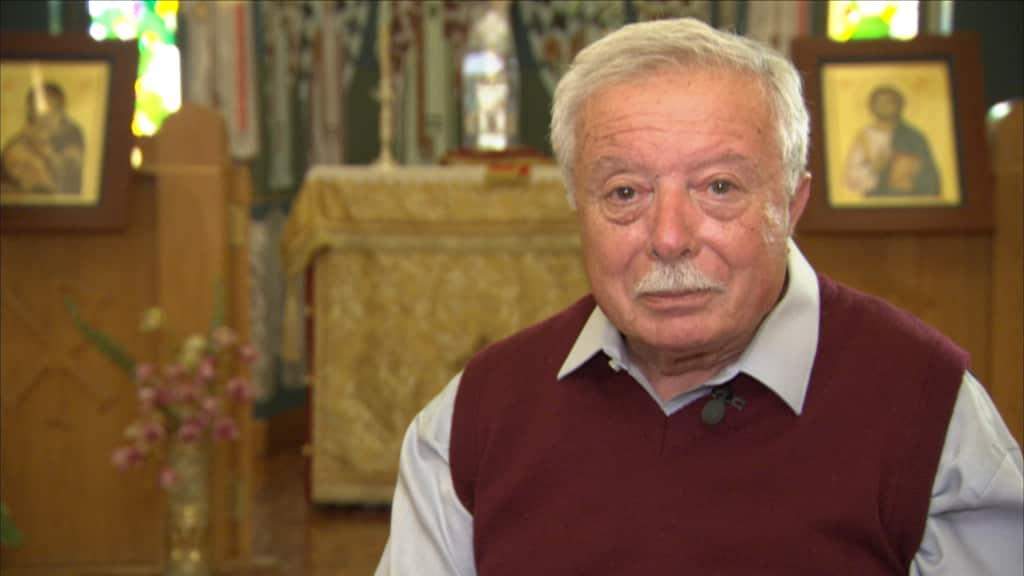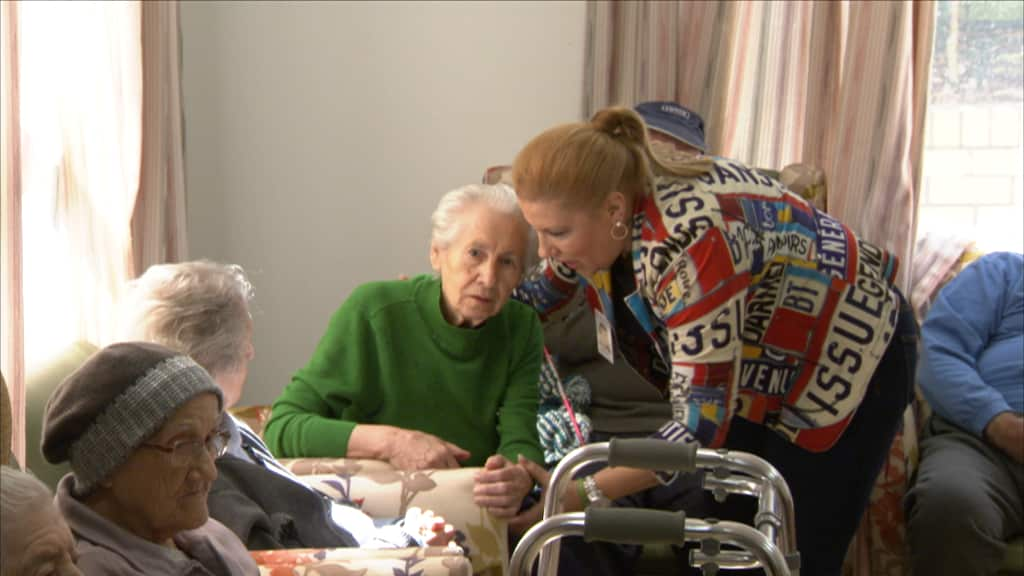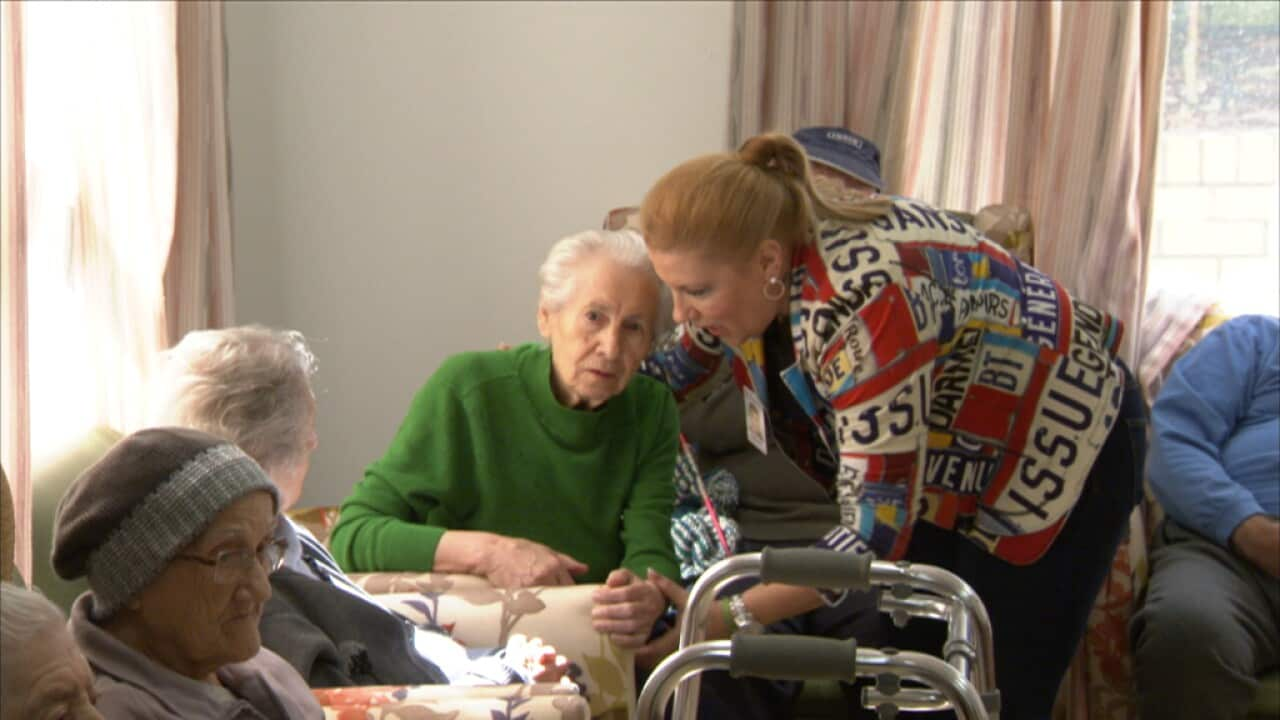The Australian population is getting older with about a quarter of all Australians expected to be over the age of 65 by 2050.
This figure only places extra emphasis on health issues associated with elderly residents, especially dementia, which can lead to the sudden loss of a second language for bilingual people.
To support these residents, aged care services are being forced to look overseas for bilingual staff.
Personal trainer Joe is a popular figure at St Basil's, a Greek nursing home in Sydney's South West.
His classes are conducted in Greek because many of the residents have dementia, causing them to revert to their native tongue.
Resident Spiros Vossos moved here 10 years ago after having a stroke.
He doesn't have dementia but still enjoys speaking Greek.
"The good thing is most of the staff are Greeks," he told SBS World News.
"Greeks have a respect for old age. It's not just a nursing home, it's a family here, we are all family. Staff and residents, everybody is like a family here." But it's a challenge for the service to find Greek-speaking staff, as the Director of Care St Basil's Mary Gibbs explained.
But it's a challenge for the service to find Greek-speaking staff, as the Director of Care St Basil's Mary Gibbs explained.

St Basil's Nursing Home resident Spiros Vossos. (SBS World News) Source: SBS
"We do try to recruit Greek-speaking staff," she said.
"We specifically advertise for Greek-speaking staff. But it's finding the right staff who are dedicated for aged care. I mean it's a job that you really want to be able to do."
Many of the Greek-speaking staff are recent arrivals, moving to Australia due to the economic crisis in Greece and require a Certificate 4 in Aged Care to work here. Nectaria Stavrou moved to Australia four years ago.
Nectaria Stavrou moved to Australia four years ago.

Worker Nectaria Stavrou and a resident (SBS World News) Source: SBS
"I like my job, I love it because it gives me the opportunity to offer and this is very important to me," she said.
"I believe that when you offer you receive back."
But it's not just this service needing more workers.
Experts say the aged care workforce will need to grow to about a million workers by 2050 to meet the demand for services.
Ms Gibbs said St Basil's was currently negotiating a labour agreement with the federal government to bring in more aged care workers from Greece.
"We have just tried to go into a labour agreement to sponsor some of the families and Greeks who want to come over here and work with our clientele in the nursing home," she said.
In 2013, a Greek aged care service in Melbourne was successfully granted an exemption to the government's 457 visa scheme allowing it to bring in Greek-speaking aged care workers under a labour agreement - nursing groups supported the move.
But, the federal secretary of the Australian Nursing and Midwifery Federation, Lee Thomas, said the federation does not support cases where language was not involved.
"We could see for those people that there was an absolute need for those people to have Greek-speaking health care workers," Ms Thomas said.
"That was back in 2013 we have been approached on numbers of occasions since and we have not agreed because in many cases we have not been satisfied that the employer has really actively searched the market for nurses to work in a variety of settings."
Aged care workers are not eligible for the country's temporary skilled migration scheme - but the government has made an exception for language specific services.
Ms Thomas said strict limits need to be maintained and the agreements need to pertain specifically to language needs.
"Certainly where assistants in nursing are concerned and for aged care, there is quite a good supply of people who are willing to do that type of work. So in many cases we are just not convinced that there is a need to bring people in on labour agreements."
Share

